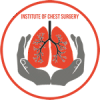Esophageal cancer is a formidable adversary that can silently develop within the esophagus, the muscular tube connecting the throat to the stomach. Early detection is pivotal in improving treatment outcomes and survival rates. Recognizing the symptoms of esophageal cancer is crucial, as it can lead to prompt medical attention and potentially life-saving interventions. In this comprehensive guide, we will explore the various symptoms of esophageal cancer, shedding light on this stealthy disease and the importance of vigilance.
Understanding Esophageal Cancer
Before delving into the symptoms, it’s essential to grasp the nature of esophageal cancer. This malignancy originates when the cells lining the esophagus undergo abnormal growth and form tumors. There are two primary types of esophageal cancer: squamous cell carcinoma and adenocarcinoma. Squamous cell carcinoma typically affects the upper and middle portions of the esophagus, while adenocarcinoma is more common in the lower segment, closer to the stomach. Both types may exhibit different symptoms, but some warning signs remain consistent.
Symptoms of Esophageal Cancer
- Dysphagia – Difficulty Swallowing:One of the earliest and most common symptoms of esophageal cancer is dysphagia, or difficulty swallowing. Individuals may experience a sensation of food getting stuck in their throat or chest, leading to discomfort and frustration during meals. Initially, this difficulty may be sporadic, but as the cancer advances, it can become more persistent and increasingly problematic.
- Unexplained Weight Loss:Esophageal cancer can cause unintentional weight loss due to reduced food intake as a result of dysphagia and other related symptoms. Additionally, the cancer’s metabolic effects can lead to a loss of appetite, contributing to weight loss.
- Persistent Indigestion or Heartburn:Chronic indigestion or heartburn, medically known as gastroesophageal reflux disease (GERD), can serve as a precursor to esophageal cancer. If individuals experience frequent heartburn, especially when accompanied by regurgitation of food or a sour taste in the mouth, they should seek medical evaluation.
- Chest Pain or Discomfort:Esophageal cancer may cause chest pain or discomfort, which can vary from sharp to burning sensations. This pain may worsen while swallowing or lying down and might radiate to the back or neck.
- Chronic Cough:A persistent cough that does not respond to conventional treatments, such as cough syrups or antibiotics, could be an indication of esophageal cancer, particularly when accompanied by other concerning symptoms.
- Hoarseness or Changes in Voice:Esophageal cancer can affect the nearby vocal cords, leading to hoarseness or alterations in voice quality. If individuals notice persistent voice changes, they should promptly consult a healthcare professional.
- Bleeding in the Esophagus:In some instances, esophageal cancer can cause bleeding, leading to symptoms such as vomiting blood (hematemesis) or passing dark, tarry stools (melena).
- Fatigue and Weakness:As with many cancers, esophageal cancer can cause fatigue and weakness due to the body’s increased energy demands in combating the disease.
- Swelling in the Neck or Face:Advanced esophageal cancer may obstruct the lymph nodes in the neck, resulting in swelling or lumps in this area.
When to Seek Medical Attention
Given the gravity of esophageal cancer, it is vital to recognize its symptoms and seek medical attention promptly if they are observed. While these symptoms can be indicative of various conditions, not solely esophageal cancer, a timely evaluation can help rule out potential concerns or facilitate early diagnosis if esophageal cancer is present.
Risk Factors for Esophageal Cancer
Several factors can elevate an individual’s risk of developing esophageal cancer. Being aware of these risk factors is imperative for preventive measures and early detection. Common risk factors include:
- Age and Gender: Esophageal cancer is more prevalent in individuals over the age of 55, and men are at a higher risk than women.
- Tobacco and Alcohol Use: Long-term tobacco use, including smoking or chewing tobacco, significantly increases the risk of esophageal cancer. Additionally, heavy alcohol consumption is associated with an elevated risk.
- Gastroesophageal Reflux Disease (GERD): Chronic GERD, characterized by frequent acid reflux into the esophagus, can lead to Barrett’s esophagus, a condition that may progress to esophageal cancer over time.
- Obesity: Being overweight or obese raises the risk of developing adenocarcinoma of the esophagus.
- Dietary Factors: A diet low in fruits and vegetables and high in processed foods may contribute to an increased risk of esophageal cancer.
- Achalasia: Achalasia is a rare disorder that affects the lower esophageal sphincter’s ability to relax, leading to difficulty in swallowing and an increased risk of esophageal cancer.
- Family History and Genetics: Having a family history of esophageal cancer or certain genetic conditions may elevate the risk of developing the disease.
Conclusion
Esophageal cancer is a formidable foe that necessitates early detection and intervention for improved treatment outcomes. Recognizing the symptoms of esophageal cancer is vital in guiding individuals to seek medical attention promptly, potentially making a life-saving difference. Moreover, understanding the risk factors empowers individuals to make lifestyle changes that can mitigate their chances of developing this formidable disease.
If you or someone you know experiences any symptoms of esophageal cancer or falls into any high-risk category, it is essential to consult a healthcare professional promptly for evaluation and appropriate management.
Remember, this article serves as an informational guide and should not replace professional medical advice. Always consult a qualified healthcare provider for personalized guidance and treatment.






